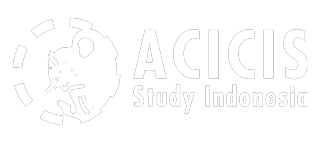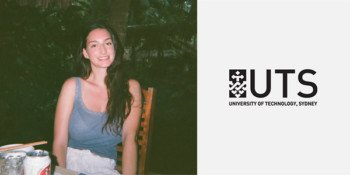Kimberly Attenborough is a New Colombo Plan Mobility Grant recipient from University of Technology Sydney. Kimberly undertook the Virtual Public Health Study Tour in January 2021.
Q: Why did you decide to undertake this virtual program?
Studying a Bachelor of Health Science and majoring in Global Health, the ACICIS Public Health Study Tour was a unique opportunity to get overseas exposure to the health systems and its associated challenges in other communities. I also saw it as a way to form relationships with others who are also enthusiastic about public health. The program description involving gaining deeper insight into community health issues was particularly relevant for me professionally as I aim to implement strategies and initiatives that aid in the provision of health in impoverished communities.
Q: Did you receive a New Colombo Plan Mobility Grant? Why do you think the NCP is an important initiative?
I did receive the NCP Mobility Grant and believe that it is a very necessary initiative as it gives more people the opportunity to engage with this experience. In doing so, it bridges an important connection between people in Indonesia and Australia.
Q: What did you find to be the most rewarding part of this virtual program?
Over the course of the program, I was constantly interacting with like-minded people who shared the same interests and passion in the public health sector as myself. This was very motivating and inspiring and has undoubtedly fuelled my excitement for similar opportunities in the future.
Q: What did you find to be the most challenging about your experience on the Virtual PHST?
Initially, the intensive nature of the program required a lot of time management and planning in order to keep a balanced workload whilst still engaging in the content and group projects. Doing short daily revision sessions ensured the heavy content load remained manageable and I was able to dedicate time to understand the pre-reading materials.
Q: What public health issues in Indonesia have you become more interested in/aware of as a result of this virtual tour?
I gained a lot of insight into community-based health services in Indonesia when understanding the role of the Posyandu and the issues related to maternal health. It revealed to me that the effectiveness of these services as well as many other initiatives in Indonesia rely on the active participation of people in the community. I found it really motivating to see communities working to enact positive health behaviours and structures within their community. At the same time, I also more comprehensively understood the role of the government priorities and planning in determining the reach of small community-based initiatives. I have become more aware of the challenges in providing health services and resources in Indonesia. Being previously unaware of the extent of the impact of the decentralisation of health and the diversity existing within Indonesia, it was interesting to see how this influenced the initiatives and strategies aimed at combatting health issues for communities.
Q: What was your favourite virtual fieldtrip?
I found the World Mosquito Program Site trip particularly memorable. The integration of Wolbachia in areas of Yogyakarta was so innovative and seemed like a huge breakthrough in contributing to the reduction of Indonesia’s dengue burden. It was great talking to the health professionals working at the site and getting an insight into the developmental and trial processes of a health strategy.
Q: Were you able to learn about the Indonesian culture from this virtual program?
Initially when signing up to the program, I was a bit apprehensive about the online learning environment and lack of ‘hands-on’ experience. However, the combination of the field trips, cultural activities and discussions with health professionals on the field engaged me and added a lot of value to my experience. I really felt a proper connection with Indonesian culture that I was surprised to develop over the course of just two weeks and online. For example, participating in the cooking and traditional Javanese dance provided me with valuable insights into life in Indonesia and the fun activities that connect Indonesian people.
Q: How do you think the Virtual Public Health Study Tour will influence your future career or studies?
I have developed crucial skills of cross-cultural communication, where I can connect with peers from various parts of the world and to work with them. I hope my career leads me to volunteer and work in cooperation with different cultures, therefore this is a skill that I will utilise in my future relationships and interactions with others.
Q: Would you recommend this virtual program to your friends?
Yes! If anyone is looking for an intensive learning experience to broaden their understanding of health on a global setting, then the virtual program would be very beneficial.
Q: Favourite Indonesian word/phrase?
Mahasiswa – meaning student. Whilst a very relevant word to myself and my ACICIS classmates being something we all have in common, it also sounds really nice!
Q: Describe your experience of the Virtual PHST in three words:
Motivating, inspiring and enriching.


